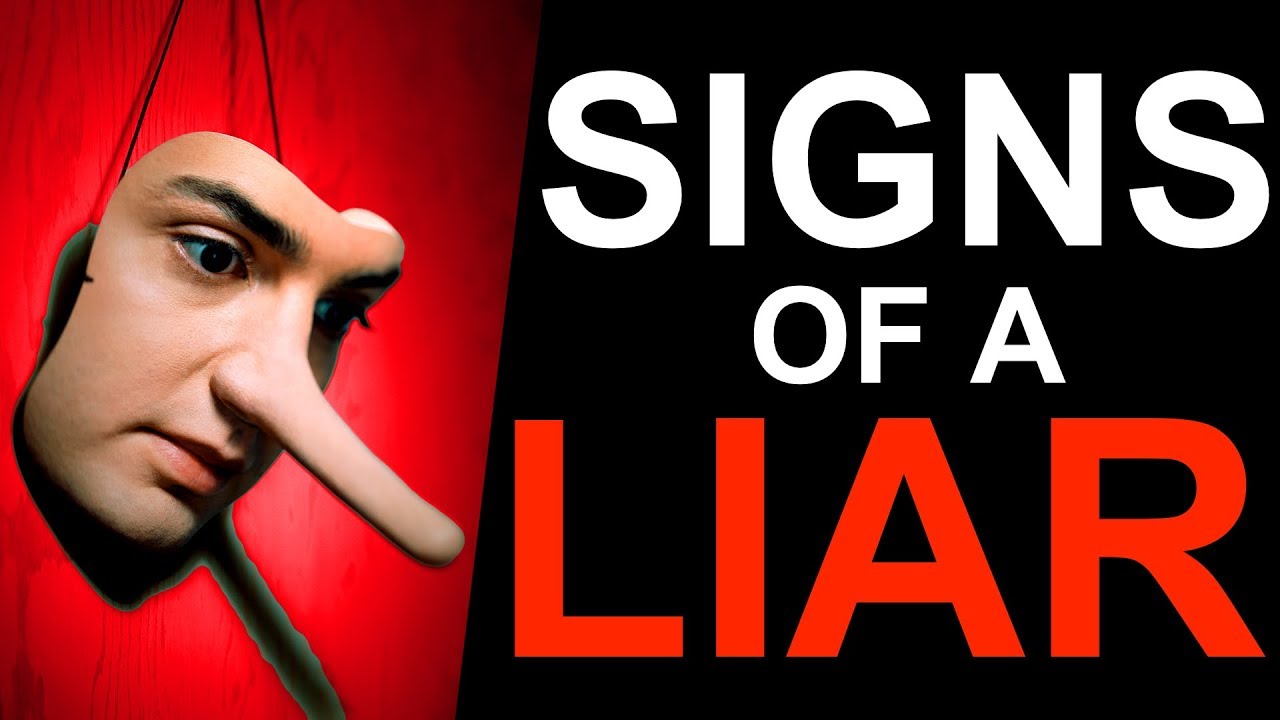When Someone Lying But You Listen Anyway: Understanding The Dynamics And Implications
Mar 23 2025
Have you ever found yourself in a situation where someone is lying, yet you choose to listen anyway? It’s a fascinating yet complex dynamic that occurs in human interactions. Whether it’s due to emotional attachment, curiosity, or even a subconscious need to avoid conflict, the act of listening to lies can have profound implications on relationships and personal well-being.
When someone lying but you listen anyway, it often stems from a mix of psychological factors and social contexts. Understanding these factors is crucial for navigating such situations effectively. This article delves into the reasons behind this behavior, its effects, and how to address it constructively.
Through expert insights, real-life examples, and actionable strategies, we aim to equip you with the tools to recognize and respond to lies in a way that promotes healthier communication. Let’s explore this intriguing topic together.
Read also:Is Movie Rulz Com Safe A Comprehensive Guide To Understanding Its Impact And Alternatives
Table of Contents
- Understanding Lies and Their Nature
- Psychological Reasons for Listening to Lies
- Types of Lies People Tell
- Impacts on Relationships
- Detecting Lies: Signs and Signals
- Why People Lie: Motivations Behind Deception
- How to Handle Lies Gracefully
- Emotional Responses to Lies
- Trust and Reconciliation After Lies
- Conclusion: Navigating the Complexities of Lies
Understanding Lies and Their Nature
Lies are a universal aspect of human communication, yet they vary greatly in intent, severity, and impact. When someone lying but you listen anyway, it’s essential to first understand the nature of the lie itself. Lies can range from harmless exaggerations to malicious deceptions designed to manipulate or harm.
According to research published in the Journal of Personality and Social Psychology, people lie for various reasons, including self-preservation, social acceptance, and even altruism. Understanding the context and motive behind a lie can help determine whether it’s worth addressing or simply letting go.
Why Lies Exist in Communication
Lies exist as a coping mechanism in many situations. For instance, people may lie to avoid conflict, protect someone’s feelings, or maintain privacy. While some lies are benign, others can erode trust and damage relationships over time.
- Protective lies: Told to shield someone from harm or disappointment.
- Manipulative lies: Used to gain control or advantage over others.
- Exaggerated truths: Often told to enhance a story or make it more interesting.
Psychological Reasons for Listening to Lies
Why do we sometimes choose to listen to lies even when we suspect they’re not true? The answer lies in our psychological makeup and the dynamics of human relationships. Several factors contribute to this behavior:
Empathy and Emotional Investment
Empathy often plays a significant role in our willingness to overlook lies. When we care deeply about someone, we may prioritize their emotional well-being over the truth. This is especially common in close relationships, where the bond outweighs the need for absolute honesty.
Cognitive Dissonance
Cognitive dissonance occurs when we hold conflicting beliefs or values. In the context of lies, it might manifest as knowing someone is lying but choosing to ignore it to maintain harmony. This mental discomfort can lead us to rationalize the lie or downplay its significance.
Read also:Burgess Abernethy Unveiling The Life And Legacy Of A Remarkable Figure
Types of Lies People Tell
Not all lies are created equal. Understanding the different types of lies can help you better navigate situations where someone lying but you listen anyway. Below are some common categories:
- White Lies: Harmless lies told to avoid hurting someone’s feelings.
- Deceptive Lies: Lies intended to manipulate or deceive for personal gain.
- Defensive Lies: Lies told to protect oneself from blame or consequences.
Each type of lie carries its own implications and requires a different approach to address effectively.
Impacts on Relationships
When someone lying but you listen anyway, the long-term effects on relationships can be significant. Trust is the foundation of any relationship, and repeated exposure to lies can weaken that foundation over time. However, the impact varies depending on the nature of the lie and the context in which it occurs.
Building Resilience in Relationships
While lies can harm relationships, they can also serve as opportunities for growth. By addressing lies constructively and fostering open communication, partners can build resilience and strengthen their bond. This requires honesty, empathy, and a willingness to confront difficult truths.
Detecting Lies: Signs and Signals
Recognizing when someone is lying is a valuable skill in navigating complex social interactions. While no single sign guarantees deception, certain behavioral cues can indicate dishonesty. According to experts in body language, these signs include:
- Inconsistent eye contact.
- Unusual pauses or hesitation in speech.
- Contradictory statements or details.
However, it’s important to approach these signs with caution, as they can also result from nervousness or discomfort rather than intentional lying.
Why People Lie: Motivations Behind Deception
Understanding why people lie is crucial for addressing the issue effectively. Research from Harvard University suggests that lying is often a response to fear, insecurity, or a desire for control. By exploring the underlying motivations, we can better empathize with the liar and work toward resolution.
Common Reasons for Lying
- To avoid punishment or consequences.
- To gain social approval or acceptance.
- To protect oneself or others from harm.
By acknowledging these motivations, we can foster environments where honesty is encouraged and lies are minimized.
How to Handle Lies Gracefully
Dealing with lies requires a delicate balance of assertiveness and empathy. When someone lying but you listen anyway, it’s important to address the issue in a way that promotes understanding rather than conflict. Below are some strategies for handling lies effectively:
- Confront with curiosity: Ask open-ended questions to encourage honesty.
- Focus on behavior, not character: Address the lie without attacking the person.
- Set boundaries: Clearly communicate your expectations for honesty in the relationship.
These strategies can help create a safe space for open communication and mutual respect.
Emotional Responses to Lies
Lies often evoke strong emotional reactions, ranging from anger and betrayal to confusion and sadness. Understanding and managing these emotions is key to resolving conflicts caused by deception. Emotional intelligence plays a critical role in this process, allowing individuals to respond thoughtfully rather than react impulsively.
Practicing Emotional Intelligence
To manage emotional responses to lies, consider the following tips:
- Take a moment to pause and reflect before reacting.
- Express your feelings calmly and honestly.
- Seek to understand the liar’s perspective without excusing the behavior.
Trust and Reconciliation After Lies
Rebuilding trust after a lie requires effort and commitment from both parties. It’s a process that involves accountability, forgiveness, and a willingness to move forward. While some lies may be irreparable, others can serve as opportunities for growth and deeper understanding.
Steps to Rebuild Trust
- Encourage open and honest communication.
- Set clear expectations for future interactions.
- Be patient and compassionate during the healing process.
By focusing on these steps, individuals can work toward reconciliation and stronger relationships.
Conclusion: Navigating the Complexities of Lies
When someone lying but you listen anyway, it’s a reflection of the complexities of human relationships and communication. While lies can be hurtful, they also provide opportunities for growth, understanding, and connection. By approaching lies with empathy, curiosity, and a commitment to honesty, we can navigate these challenges effectively.
We encourage you to share your thoughts and experiences in the comments below. Your insights can help others better understand and address similar situations. Additionally, feel free to explore other articles on our site for more valuable information on communication, relationships, and personal development.
References:
- Journal of Personality and Social Psychology
- Harvard University Research
- Psychology Today


